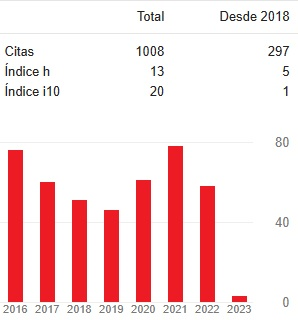EUGENIA DE MONTIJO: WOMAN AND REGENT. HIS POLITICAL ROLE SEEN BY THE SPANISH PRESS
DOI:
https://doi.org/10.51743/cih.91Keywords:
eugenia de montijo, emperor napoleon bonaparte, napoleon III, empressAbstract
In 1853 she became Empress of the French by marriage. The social rise of the Spanish woman caused a flood of information in the Press extolling the benefits of the one chosen by Napoleon III. Her links with the Spanish aristocracy - her mother had tried to make her related to the Duke of Sesto - and the role of her sister Paca, Duchess of Alba, made Eugenia de Guzmán and Portocarrero a different candidate than many " marriages ”could have been suspected. She had no family in France to showcase honor and dignity, as the Emperor himself made clear when in 1853 he presented his fiancée to the official state corporations. A priori, her position could seem limited to the institutional role conferred by her new rank and reduced to tasks of a social or welfare nature, which she will also perform with solvency. However, the strategic-military circumstances of the Third French Empire, as well as the character of the protagonist, will lead the Empress Eugenia to occupy notable positions of political responsibility.
Downloads
References
Almudena de ARTEAGA, Eugenia de Montijo, Barcelona: Ed. Martínez Roca, 2000.
Octave AUBRY, Eugenia de Montijo, Barcelona: Joaquín Gil, 1943.
R. BELLET, Presse et journalisme sous le Second Empire, París: Armand Colin, 1967.
J. CHAVES PALACIOS y F. LÓPEZ MORA, El Segundo Imperio Francés (1852-1870), Córdoba: Servicios de Publicaciones de la Universidad de Córdoba, 2012.
Antonio CHECA GODOY, El ejercicio de la libertad. La Prensa española en el Sexenio Revolucionario (1868-1874), Madrid: Biblioteca Nueva, 2006.
Antonio CHECA GODOY, “Auge y crisis de la prensa satírica española en el Sexenio Revolucionario (1868-1874) “, El Argonauta español [En ligne], 13 | 2016, mis en ligne le 30 janvier 2016, consulté le 24 juillet 2020, https://journals.openedition.org/argonauta/2335. DOI: https://doi.org/10.4000/argonauta.2335
Fernando DÍAZ-PLAJA, Eugenia de Montijo, emperatriz de los franceses, Barcelona: Planeta, 1993.
D. DUFF, Eugenia de Montijo y Napoleón III, Madrid: Rialp, 1981.
Pilar EYRE, Pasión Imperial. La vida secreta de la Emperatriz Eugenia de Montijo, la española que sedujo a Napoleón III y conquistó Francia, Madrid: La Esfera, 2010.
P. GUIRAI y E. TEMIME, “L’Hisiorioarupliic dii Second Empire”. Revue d’Histoire Moderne et Contemporaine, t. XXI. París, 1974. DOI: https://doi.org/10.3406/rhmc.1974.2273
Eugenio HARTZENBUSCH, Apuntes para un catálogo de periódicos madrileños desde el año 1661 al 1870, Madrid: Rivadeneira, 1894, 421 p. [edición facsímil de 1993, Madrid, S.L. Ollero y Ramos]
M. HOWARD, The Franco-Prussian war, Londres: Methuen, 1981.
José María JOVER, La era isabelina y el Sexenio Democrático, Barcelona: RBA, 2005.
Emil LUDWIG, Bismark: Historia de un luchador, Juventud: Barcelona, 1972.
I.MARGARIT, Eugenia de Montijo y Napoleón III, Madrid: Plaza&Janés, 1999.
Marie- Angèle OROBON, “Una gloriosa revolución: Prensa satírica ilustrada e información militante (1868-1870)”. Actas del XIII congreso de la Asociación de Historia Contemporánea, Cuenca: Ediciones de la Universidad de Castilla la Mancha, 2017.
F. PAEZ-CAMINO y P. LLORENTE HERRERO, Francia: el Segundo Imperio y la Tercera República, Madrid: Akal, 1986.
Alejandro PIZARROSO, Historia de la Prensa, Madrid: Ramón Areces, 1994.
Imbert SAINT-AMAND, Napoleón III. Barcelona: Montaner y Simón Editores, 1898.
J. STEINBERG, Bismarck: A life, Oxford: Oxford University Press, 2011
Juan B. VILAR, Los españoles en la Argelia francesa (1830-1914), Murcia: C.S.I.C. y Secretariado de Publicaciones de la Universidad de Murcia, 1989.
Downloads
Published
How to Cite
Issue
Section
License
The Fundación Universitaria Española publishing house preserves the patrimonial rights (copyright) of published works, and encourages and allows their reuse. The works are published in the electronic edition of the journal under a license “Creative Commons Atribución/Reconocimiento-NoComercial 4.0 Licencia Pública Internacional — CC BY-NC 4.0”, and can be copied, used, disseminated, transmitted and publicly exhibited, provided that : a) the authorship and original source of its publication is cited (journal, publisher and URL of the work); b) are not used for commercial purposes; c) the existence and specifications of this license of use are mentioned.
The author / s partially transfer the property rights (copyright) of this work to the Fundación Universitaria Española (Spain) (NIF: G28433670), for the printed and online editions.
It also declares to have respected the ethical principles of research and to be free from any conflict of interest.
«C.I.H.» encourages the authors and the scientific community to the maximum promotion and dissemination of the works in their final version through:
1) Your list of contacts (emails) and social networks (Facebook, Twitter, LinkedIn ...).
2) Institutional repository of your University and public repositories (Mendeley, Cosis ...).
3) Scientific social networks (ResearchGate, Academia.edu, Kudos ...).
4) Personal or institutional website, blog, etc.
5) Google Scholar, ORCID, ResearchID, ScopusID, Dimensions, PlumX ...
6) Printed copies purchased directly and sent to specialists for reading and subsequent citation if appropriate.
For the nomination of future articles by authors of "C.I.H.", the impact of previous works will be taken into account, so that those with citation higher than the annual average of the journal will be preferred.












2.jpg)
















1.png)
1.png)

1.png)


.png)
.png)

.png)
1.png)
1.png)
